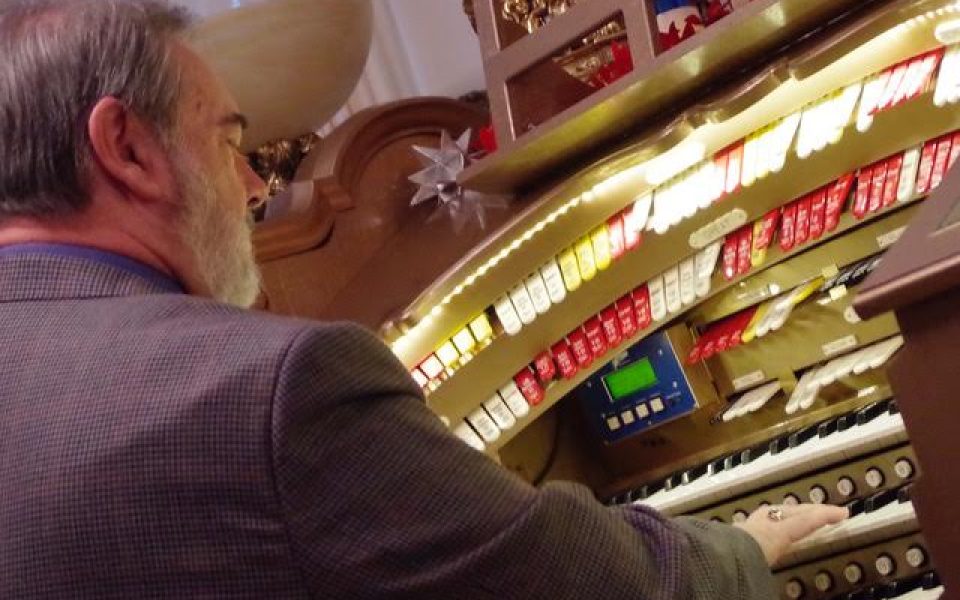There is a legendary instrument in North Carolina that is as scarce as the purpose it was created for: the theater organ.
Carolina Theatre, whose doors opened in October 1927, owns a Robert Morton Pipe Organ built in the same year. While many visitors have patronized the theater, few had experienced the sounds that emanate from the organ. Until the return of the silent film Metropolis.
Mark Anderson projected a pleasant demeanor. From the moment he turned away from the organ that sits atop the theater’s stage to make his way down the stairs, the smile never retreated from his face. Despite the film starting in a matter of minutes, he was eager to discuss the movie many have come to see. Some will even sit through it twice.
Anderson has been invited to play the International Artist Version score, a score he wrote, for the movie Metropolis on the theater’s organ for the evening.
“The original score no longer exists,” Anderson said with sadness in his eyes.
Anderson’s score is the one now played all over the world.
Anderson has taught at the Juilliard School, performed at Carnegie Hall, appeared on an hour-long PBS special, played the organ for the Boston Symphony and worked as head staff music arranger for NBC in New York.
When Metropolis began to play on the theater screen on Aug. 18, the attention of the audience focused to the left of the stage where Anderson sat comfortably behind a beast of a machine that looked to have more components that some sci-fi retro starship.
With each press of a finger Anderson created the sounds of a foghorn, a ticking clock, a footstep, even a romp in the garden of sin. As the film progressed, the audience’s attention gradually shifted from Anderson to the screen, as his organ playing created the illusion of dialogue, albeit without the clutter of language.
It’s clear that Anderson’s organ accompaniment is a form of storytelling in its own right.
Metropolis is a notable film as one of the earliest examples of science fiction being used in cinema. The film was originally released at 150 minutes at its premiere in that same magical year of 1927. According to film aficionados, Metropolis was edited to one hour by Paramount for its US release after being released in German in its entirety. The Aug. 18 presentation at the Carolina would include both versions.
“A lot of this footage was never intended to be in the movie because it is 2.5 hours of silent film,” Anderson said. “The reason why we have the two versions now is basically for people who are studying film. The two versions together show you what was cut out of the movie, you know, on the cutting room floor for editing.”
Some fan sites contend that director Fritz Lang intended for the movie to be the full 2.5 hours.
Regardless of what either school of thought believes the director intended, the recovery of the missing movie reels from a museum in Argentina in 2008 provides a revelation.
The coupling of Anderson and Metropolis was like one of those fancy food pairings in a discrete location that costs an obscene amount of money.
At the end of Metropolis, the audience gave the customary applause. But when Anderson turned to greet the audience he had ushered through a wondrous work of cinema art, the crowd rose to their feet. Anderson took it in with grace, displaying the same smile he showed as he casually discussed film.
His job was done.
Join the First Amendment Society, a membership that goes directly to funding TCB‘s newsroom.
We believe that reporting can save the world.
The TCB First Amendment Society recognizes the vital role of a free, unfettered press with a bundling of local experiences designed to build community, and unique engagements with our newsroom that will help you understand, and shape, local journalism’s critical role in uplifting the people in our cities.
All revenue goes directly into the newsroom as reporters’ salaries and freelance commissions.


Leave a Reply